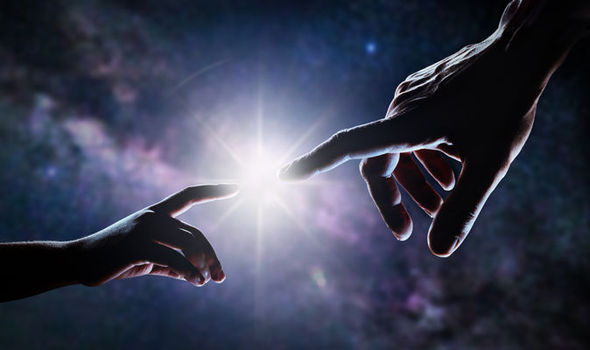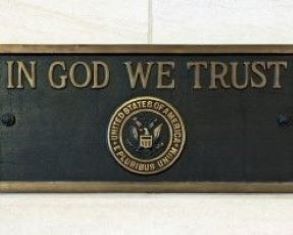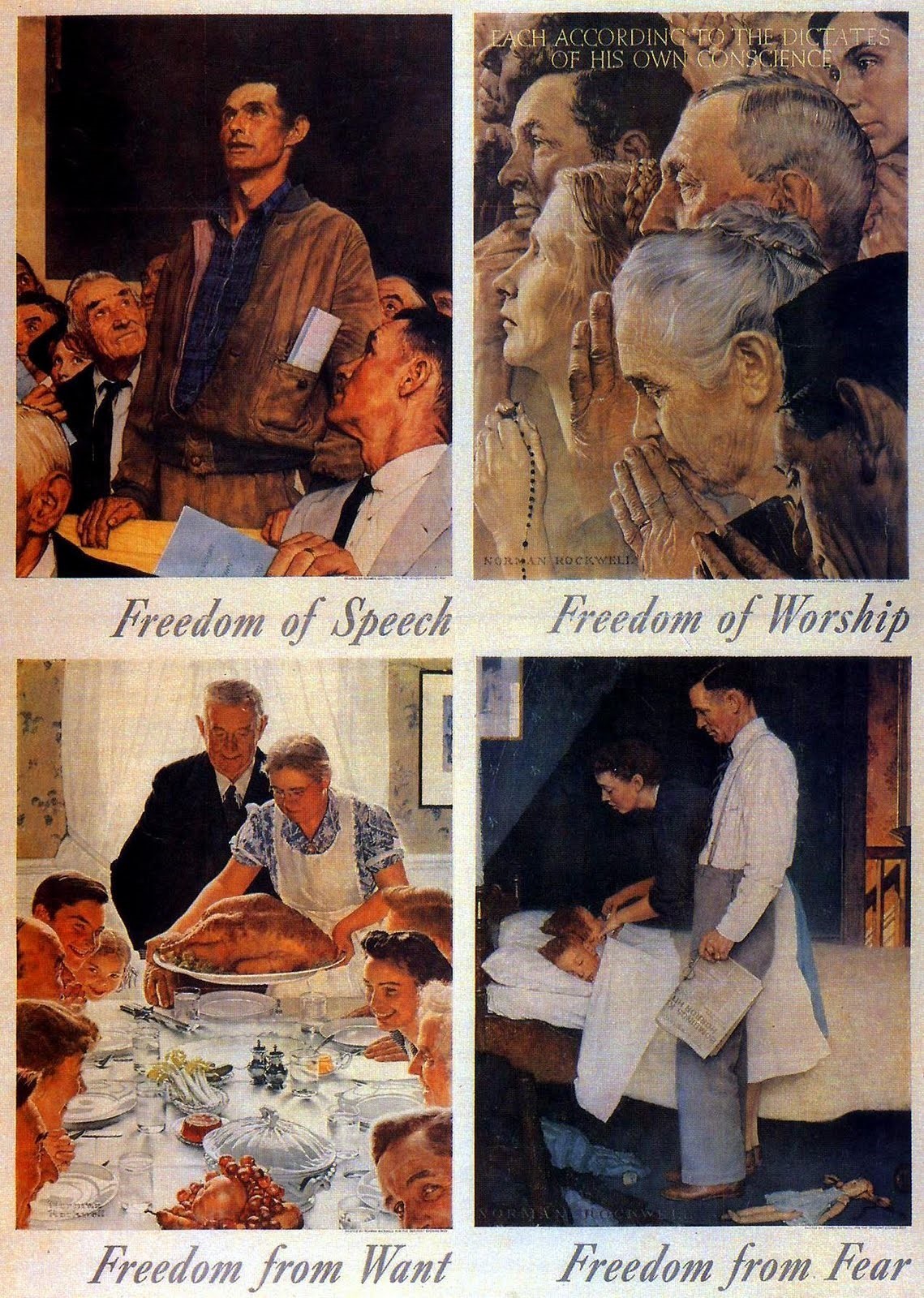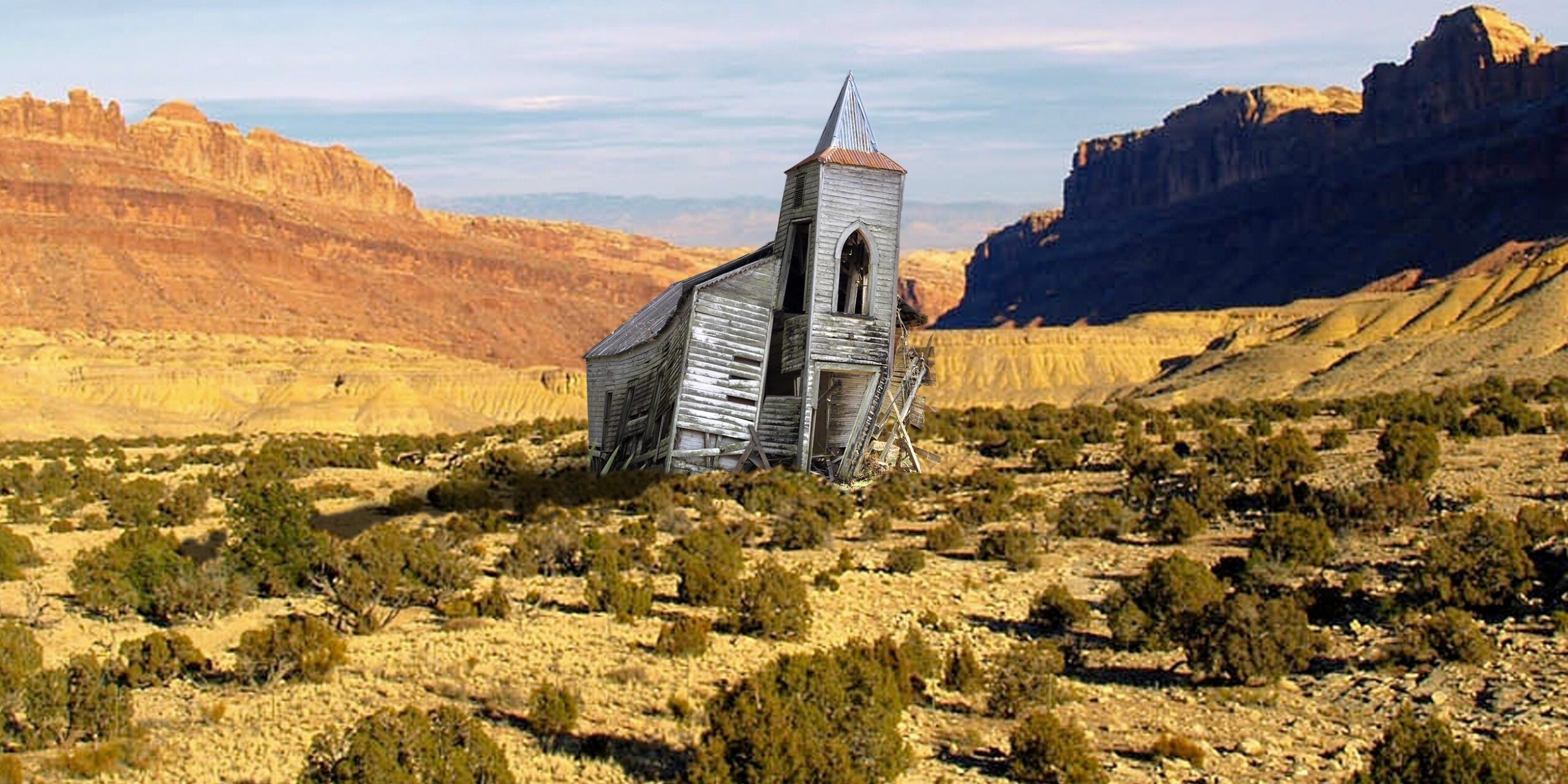
The Left’s War On History Is Really A War On The God Of The Bible
America as we know it is the product of the revolution of the Bible. But now that biblical inheritance is under siege.
By Josh Hawley – September 15, 2022
20 MIN READ
The following remarks were given at the National Conservative Conference on Sept. 12, 2022.
It is a pleasure to be with you once again.
At the first National Conservatism conference, I spoke about the left’s goal of unmaking American culture and community. Last year, I spoke about their goal of unmaking manhood.
This year, I want to talk about their efforts to unmake history. Specifically, the history of our country and our founding — and the revolution on which both were based.
I take as my point of departure the words of John F. Kennedy at his inaugural address in 1961, when he famously reminded his generation: “We dare not forget that we are the heirs of that first revolution.” He meant, of course, the Revolution of 1776, which he described as grounded in the “the belief – that the rights of man come not from the generosity of the state but from the hand of God.”
Now, that is an interesting contention. And Kennedy was not alone in making it. But where did it come from? Where did the idea that the rights of man come from God, not the generosity of the state, originate?
The answer is clear, if often and deliberately overlooked in our day: that idea came from the Bible. And that brings me to my contention to you today. We are a revolutionary nation precisely because we are the heirs of the revolution of the Bible.
This was a revolution that began with the founding of the nation of Israel at Sinai; that gathered pace with the teachings of Jesus of Nazareth in the days of ancient Rome. This was a revolution of ideas and culture, of society and government and faith – it was truly, to quote the Bible itself, a revolution that turned the world upside down.
Let me be more specific. To a world composed of clans and tribes, the Bible introduced the very idea of the individual. To a world that valued the wealthy and well-born before all others, the Bible taught the dignity of the common man. To a world that prized order and control, the Bible spoke of liberty.
Without the Bible, there is no modernity. Without the Bible, there is no America. And now our biblical inheritance is again at the center of our politics. It is the question of the age.
The woke left that controls today’s Democrat Party is on a campaign to remake this nation. They want us to believe this country is irredeemably racist and oppressive. They tell us our true founding came with the advent of the slave trade on this continent.
They reject our history and our traditions. They say sex is merely a social construct. That men can get pregnant. That women can be men. That the nuclear family is a repressive institution.
And their real target in all this is the inheritance of the Bible. What they particularly dislike about America is our dependence on biblical teaching and tradition. What they particularly dislike about our culture is the Bible’s influence on it. And now they want to break that influence for good.
My argument is simple: They’re wrong.
Whatever your own beliefs, whatever your background, the revolution of the Bible is worth defending. It is worth preserving. It is the true source of the rights of man and the liberties we cherish. It has taught us what we know of dignity and equality.
The Bible has made us who we are. And it is critical to our future.

Individual Agents of God’s Purpose
Let me start with what is perhaps our most cherished ideal as Americans, the ideal of the individual.
There is a myth long loved by certain leftists that the ancient world was a free, secular place where people believed as they wanted and lived lives of their own making. We know from historians that nothing could be further from the truth. In the ancient world, the individual as such hardly existed. There was no such thing as individualism.
The ancient world was a place of hierarchy. Every thing, every person, had a place, fixed and unchanging, bound to where it was by the order of the cosmos. Some were born to rule, most were born to follow, many were born to be slaves — that was the belief.
Every family had its ancestral gods, and the family head alone had the right to rule the household in the gods’ name. Every city had its patron deity, which every citizen was bound to worship. In fact, to be a citizen was to be a member of a particular city and a worshiper of a particular god or gods.
There was no such thing as freedom of conscience in this world, no such thing as individual decision. As the nineteenth-century historian Fustel de Coulanges put it, “The human person counted for very little against that holy and almost divine authority which was called country or state.”
As for history — well, history was made by those few the “order of nature” designated to rule. Always men of social standing. Usually wealthy. The natural elite.
The Bible challenged all of this, and right from the very beginning. In Genesis 12, God calls Abraham, a nobody from nowhere — no social standing, no claim to power or rule — God calls this man to leave his father’s house and his father’s gods, to leave the markers of meaning and identity in the ancient world, and to serve him — the one true God, Scripture claims.
God calls Abraham to stand before him as an individual. God’s gaze rests on him personally.
Or as Rabbi Joseph Soloveitchik writes, Abraham “could not find solace in the silent companionship of God whose image was reflected in the boundless stretches of the cosmos. Only when he met God … as Father, Brother, and Friend … did he feel redeemed.”
God tells Abraham that as an individual he — he personally — will be God’s agent of blessing and renewal for all the world. We see the same pattern repeated in the New Testament. Jesus says salvation is available to all who will come to him, and that those who follow him will be called “sons of God.”
Meaning: shapers of history. World changers. People through whom God himself will act.
And with this, the idea of the individual is born. One need not be a member of this family or that to be significant. One need not have wealth or social standing. One need only heed the call of God.
In the words of historian Larry Siedentop, “Christ reveals a God who is potentially present in every believer…. Through an act of faith in Christ, human agency can become the medium for God’s love.” Or to say it another way, every person can become an agent of God’s purpose—as an individual.
Where does this leave the old idea of fate and controlling destiny? Done away with. Where does leave the notion that one’s place in the world is fixed and cannot be changed? Abolished.
Now the individual person becomes an agent of change. Now he or she becomes a maker of history.
The Bible invents this kind of individual. And the Bible reveals the dignity of the common man.
Read the Bible through and you will find across its pages a decided preference for the common, the ordinary, the overlooked—as opposed to the elite, the wealthy, and the socially powerful. God chooses Abraham from nowhere. He famously prioritizes Jacob, who was the second son. King David, before he was king, was the least of his brothers and the least likely to rule.
This same theme finds equally pointed expression in the New Testament. The Apostle Peter preaches in his first sermon that God’s spirit — his very presence — is now available for all people, as the ancient prophets had foretold — men and women, old and young.
Then there is the Apostle Paul, who said, “God chose the foolish things of the world to shame the wise; God chose the weak things of the world to shame the strong.”
To a society that privileged wealth and status, a society that disdained workers and mothers and children and common folk, the Bible says: each has dignity. The common things of life have dignity. Motherhood. Home. Labor.
It has hard to overstate the disdain the world of Greece and Rome held for common laborers, people who worked with their hands. Not in the Bible. The patriarchs raised livestock. Jesus was a carpenter and his disciples fishermen. Paul made tents.
And the Bible emphasizes over and again the power of labor that is offered to God. Work unto God, Scripture says, and God will use that work to further his good purposes in the world. He will make the work matter. He will make it last, however common or mundane.
The ancient world honored the high and mighty. The Bible, to paraphrase the Canadian theorist Charles Taylor, affirmed the significance of ordinary life.
I have two small boys at home and I love to read to them. Among their favorites is Tolkien, who captures this theme beautifully in “The Lord of the Rings.” “Such is oft the course of deeds that move the wheels of the world: small hands do them because they must, while the eyes of the great are elsewhere.”
There is no ideal more central to American life than the dignity of the common man. And it is an ideal given to us by the Bible. The biblical tradition also gave us a new concept of liberty.
It’s interesting: in the ancient near east, Mesopotamia, the creation stories often involved the gods founding primordial cities, and then when humans came along designating human kings to rule the cities on the gods’ behalf.
Not in the Bible. Oh God does indeed designate someone to exercise his authority and carry forward his purposes. Genesis makes much of that. But it’s not a king. It’s Adam and Eve, on behalf of all humanity. From the first, the Bible pictures individuals as capable of self-rule.
For the early Christian philosopher Tertullian, Jesus’s maxim to “render to Caesar what is Caesar’s, and to God what is God’s” had clear political implications: offer to Caesar your money, Tertullian said, but offer “to God your self.”
The point was, individuals, as God’s image-bearers, belonged to God and to him alone, not to the emperor or some far-away king. God and God alone had the right to claim the individual’s obedience: no one else. No government. No king.
The individual deserved liberty to respond to God’s call on his or her life. It’s right there in the Exodus, the story of God calling a people to follow him by liberating them from oppression. It’s there in the Apostle Paul, who wrote that it is for liberty that we have been set free.
This is a concept of liberty virtually unknown to the ancient world. The Greeks spoke of liberty from time to time, but for them and their philosophers, liberty meant mainly life in accordance with the order of nature. Which meant hierarchy.
Plato and Aristotle, for example, both assumed “freedom” for most individuals meant obeying their moral and social betters. The Romans famously valued self-government, at least for part of their history. But they too saw the right to self-rule as confined to the small class of individuals fit by nature to be citizens. Everybody else was a dependent.
And neither Romans nor Greek recognized significant limits on government power.
But if God’s spirit can be poured out on all people, if God has called each person to be his delegate and exercise his authority, surely that has political implications. Surely that means citizenship cannot be confined to the elite. Surely it means even the common man has the right to self-rule. Surely it says even the common man has the right to liberty.
And as I once heard the late Rabbi Lord Jonathan Sacks say, surely God’s call to the individual sets a limit on the state. It draws a boundary on the exercise of government power and says, “No further.” And there we have it: Individualism, the dignity of the common person, liberty. This is our biblical inheritance.
I could go on. The Bible gave us also the idea of a state ruled by men, not by gods. It gave us the distinction between church and state. It gave us equality between men and women. And more, much more. But you get the idea.
These were revolutionary notions that upended the ancient world. And they found their purest political expression in the United States of America.
The biblical revolution is right there in the Declaration of Independence, which proclaims that “all men are created equal,” that we are endowed by our Creator with “unalienable” rights. These confessions would take centuries to realize in this country, but we recognized them as true from the first.
The biblical revolution is there in our Constitution, which separates powers among offices and stations to ensure the common person can rule, and no clique or elite.
It is there in the Bill of Rights that guarantees freedom to worship, to speak, to assemble, and to exercise one’s faith free from government interference.
The biblical tradition echoes in the great tent revivals of the frontier, where hardscrabble folks with little to their name heard from the itinerant preachers that they too were called by God. They too could be God’s servants. You didn’t need a fancy education or a landed estate to be God’s child. And those revivals helped spawn a populist political movement that reverberates to this day.
America as we know it, America as we love it, is the product of the revolution of the Bible. But now that biblical inheritance is under siege.

A Cultural Revolution
Today’s woke left is frantically engaged in a campaign of political nihilism. This is the sum and substance of their program. They want to level the institutions of American society—the family, schools, church and synagogue, our judicial system. They say the country is structurally warped and must be remade top to bottom. But what they reject, at bottom, is our biblical inheritance.
I mentioned in my remarks last year the mid-century thinker Herbert Marcuse. Marcuse was a great advocate of the `60s-era student radicalism and of the nihilist attitude toward American society that dominates the left today. In a word, he was woke.
He was also honest. Marcuse was an atheist and a Marxist and he spent a good deal of time wondering why Marx’s long-looked-for end of history had never arrived. He decided one major reason was Christianity.
Like Marx, Marcuse believed biblical faith was an opiate, a form of false consciousness. And he worried that it saturated American society. So in a break with Marx’s economic determinism, Marcuse decided culture was king. And America’s Christian culture was preventing the Marxist revolution the world needed.
Even worse, the working class, the proletariat, embraced that culture more than anyone.
For that reason, Marcuse concluded revolution wouldn’t come from working people. The Christian hold was too strong. Instead, he placed his faith elsewhere—and this is key. He placed his faith in the educated elite.
America needed a cultural revolution to rid itself of the Bible’s taint. And the elite were just the people to deliver it. Sound familiar? That’s today’s politics in a nutshell.
Today’s woke left is carrying out a Marcuse-style kulturkampf. They increasingly insist that individuals don’t matter. They say society isn’t composed of equal individuals standing before a sovereign God, but of warring racial and economic groups vying for power.
The woke theorists at the Smithsonian tell us that “individualism” itself is racist, nothing more than an artifact of “white culture.” In the last few years, two separate woke theorists have argued—in The Nation and The Washington Post—that Americans’ votes should be weighted on the basis of race. In the name of democracy, “one person, one vote” is out.
The woke left dislikes the notion of the common man. They reject the biblical idea that all men and women are equally valuable and equally worthy of participating in political life. They call working people “deplorables,” and they regard working culture as uncouth and backward—characterized by the sort of people who cling to “guns and religion,” as someone once said.
No, the woke think the educated elite know best. By which they mean, naturally, themselves. And they are not afraid to use power.
If the Big Tech oligarchs decide that reporting on Hunter Biden is too dangerous to their interests, they simply erase the story from the public square. If they decide questioning Anthony Fauci is too threatening to their priorities, they prevent it by their own fiat.
That’s only the beginning.
If the reigning political class decides a former president poses too much trouble to their plans, they order a raid on his house and threaten to jail him. If they conclude too many Americans are complaining online, they create a Disinformation Board to shut them down. Any disagreement is called “violence” and any dissent “insurrection.”
Marcuse pioneered the concept of “repressive tolerance”—that is, free speech for me but not for thee. He would be proud of today’s liberals.
Finally, the left rejects the biblical idea of conscience and the liberty that comes with it. Attacks on religious freedom and intellectual inquiry are commonplace now. The woke insist on targeting citizens engaged in works of mercy, like the Little Sisters of the Poor, because they have the audacity to disregard elite preferences and serve a God beyond the state.
The woke insist that nobody, and especially not parents, may ask questions about what children are being taught in schools. To do otherwise is to be a “domestic terrorist.”
To them, liberty means falling in line with the norms they prescribe. It means following the social rules they had down.
They will decide what speech is acceptable.
They will decide which religious beliefs may be acted upon, and how.
They will determine what is true and what is not, what is fact and what is “disinformation.”
They will run the country.
The left say they want to lead us to a new era. But where they would take us is no age of enlightenment. It is not someplace new at all. It is backwards, to an old age of darkness and hierarchy and repression.
And that brings us to the task before us.

The Truth Is Their Stumbling Block
The woke left now controls the commanding heights of American culture: the media, the entertainment industry, the corporations, academia, and government. They seek to marshal their combined cultural power against those who disagree.
They seek to shame us, to isolate us—to silence us, if they can. They seek to protect their power. And they can succeed—but only if we allow them.
In truth, their vision is bleak and their ideology is brittle. They do not understand the deep strength of the American people, because they do not understand the deep goodness of their character. They see only deplorables who must be re-educated.
They do not understand our history and our ideals because they do not appreciate the truths on which this nation is based. They do not realize these truths have made us good and made us strong. And truth is their problem. The woke ideology, this warmed-over cultural Marxism, is not true.
Race and class do not define all that we are. Society is not an unending struggle for power and domination. And America is not structurally defective. America is the best and freest nation in the history of the world. And it is so largely because of the biblical revolution that made us what we are.
And now we need that inheritance again. In this time of fear and despair, we need to hear again that our lives matter—that we are loved by God—that we are called by God to great purpose—and that eternity beckons. What we do now can last. What we do here can matter.
We need to hear again of the dignity of ordinary life, of work and hearth and home, of the joys of marriage and family, and the power of these things to shape the future.
I slightly misspoke earlier, in this connection, when I said God called Abraham as an individual. That much is true, but God said it was Abraham’s family he would use to change the world. Abraham became a blessing to mankind when he became a husband and father. The same is true for us and true for today.
In the final analysis, the woke ideology has more in common with the ancient world than it does with America. And it will not prevail in the end.
Whether it prevails in our time is up to us. That will depend on our courage.
To Strike a Blow for Truth
I close with this.
In A.D. 390, a crowd of Christians gathered at a pagan temple known as the Serapeum, in the city of Alexandria. It was a shrine to the god Serapis.
A few years before, the virulently anti-Christian emperor Julian had attempted to throttle Christianity and purge Rome of Christian influence. Among other measures, he seized control of the education system and barred Christians from teaching. He demanded all students study in ways he approved. He commanded worship of the Roman gods.
One of those gods was Serapis. And now on this day in 390, in the shadow of the state’s recent persecution, a group of Christians gathered at the temple to take a stand.
In the center of the temple was a statue of the god, clutching in his hands a three-headed serpent. The legend went that “if any impious hand should dare to violate the majesty of the god, the heavens and earth would instantly return to their original chaos.”
One soldier stepped forward, carrying an axe. His name is lost to history. All we know of him is what the historian Rufinus tells us, that he was “better protected by faith than by his weapon.”
And there, in that moment, this one man made a choice. He made a choice to live free from the powers and principalities of his age. A choice to reject the dictates of emperors. A choice to strike a blow for truth.
The lone soldier climbed a ladder to the top of the statue and raised his battle-axe. Then, with all his might, he drove it home.
Onlookers reported that as the blow fell, the god’s jaw broke away. And as it did, thousands of rats came surging out of its rotten inside.
The woke left may seem powerful. And indeed they are.
Opposing them may cost us much. But the truth is worth any cost. And that’s what courage is, in the end. It is paying the cost, no matter how high, for the truth.
And remember the teaching of scripture, the one that runs from first to end: that though the God of the universe could have accomplished his purposes entirely on his own, he chose instead to call us. He invites us to do his work and to follow him.
And so let us count the cost, and take our stand. For when we do, we shall turn the tide.
Josh Hawley is a U.S. senator from Missouri and former Missouri attorney general.
